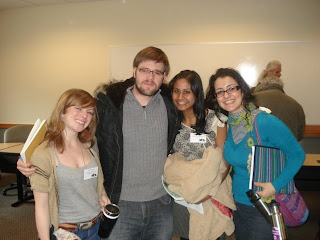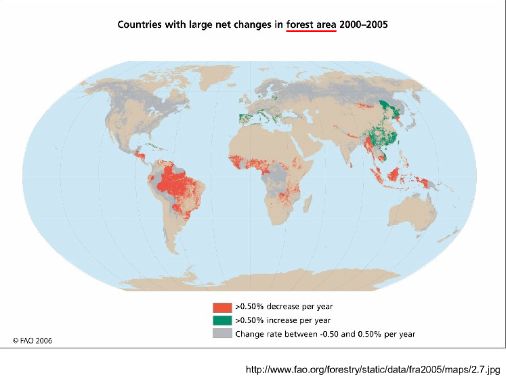school year. This experience was exactly what I needed to root me for the
rest of the school year and reinvigorate my interest in the law.
The whole trip was made possible because of so many people's time and
effort. Thank you to the school for the generous funding, the ELC
executives for all their hard work, the drivers who transported us safely,
and our gracious hosts at the University of Oregon who really know how to
organize a conference!
The conference started off on an excellent note with the key-note address
of Pablo Fajardo. From what I understood of his presentation - Pablo and
his community had been affected by the activities of mining companies in
Ecuador for many years - years before he decided to pursue his legal
studies. It was amazingly inspirational to hear how he was motivated to go
to law school by what he saw in his community. It seems like a much more
logical reason/motivation to go to law school than any reason I can come
up with. His dedication and passion for helping his people and bringing
justice to the region are admirable. It was shocking to learn that his
brother had been assassinated and that he had had to relocate his family
in order to protect them. I saw Pablo again the next morning at the Human
Rights and Environment talk as well as at the ELAW party at the end of the
conference. Each time he was smiling and full of energy. I hope to learn
from his passion, conviction, and optimism.
The Human Rights and Environment talk was very interesting and really made
me wish that UVIC offered this course. Maybe this should be a project for
us? Maybe we can create a directed studies - student seminar-like class
under this topic. Just something to think about…..
OK, Jensen. I thoroughly enjoyed his presentations (I went to all three)
because they offered such a genuinely different perspective on the issue
of the environment and how we humans interact with it. It is sometimes
hard to reconcile aspects of his presentation - at times the talk flowed
like a calm nature walk through the forest, and at other times, the talk
was militant and angry. Whatever you took the dominant theme of his talk
to be, I feel like he expressed many thoughts and ideas that other people
secretly wish to articulate, or ideas, that while lacking realistic depth,
are useful in fostering discussion and making people think about new
ideas.
What I really did enjoy about his presentation was the implied concept of
NGO and civil society cooperation and infighting. I do not know if this
was an implied theme or if it was pretty obvious, but I found his
criticisms to be apt. Not all environmentalists can be lawyers, activists,
educators, scientists, etc. But ALL environmentalists need to support each
other's efforts - we may not have the exact same final result in mind, but
we do all agree that the environment is a non-renewable resource that we
must protect now while we can. I felt that Jensen was advocating for more
unity and cooperation among environmentalists - a much needed reminder for
the whole community.
Seeing so many powerful passionate women at this conference was also
inspirational. Zhang Jingjing, Lucia Xiloj, and Carla Garcia were dynamos
- all great presenters with amazing stories to share.
The number of panels and the wealth of knowledge of the presenters was
truly impressive and made for an excellent conference.
Irene and Erin
PS. Here is a selection of pictures from the event!





















